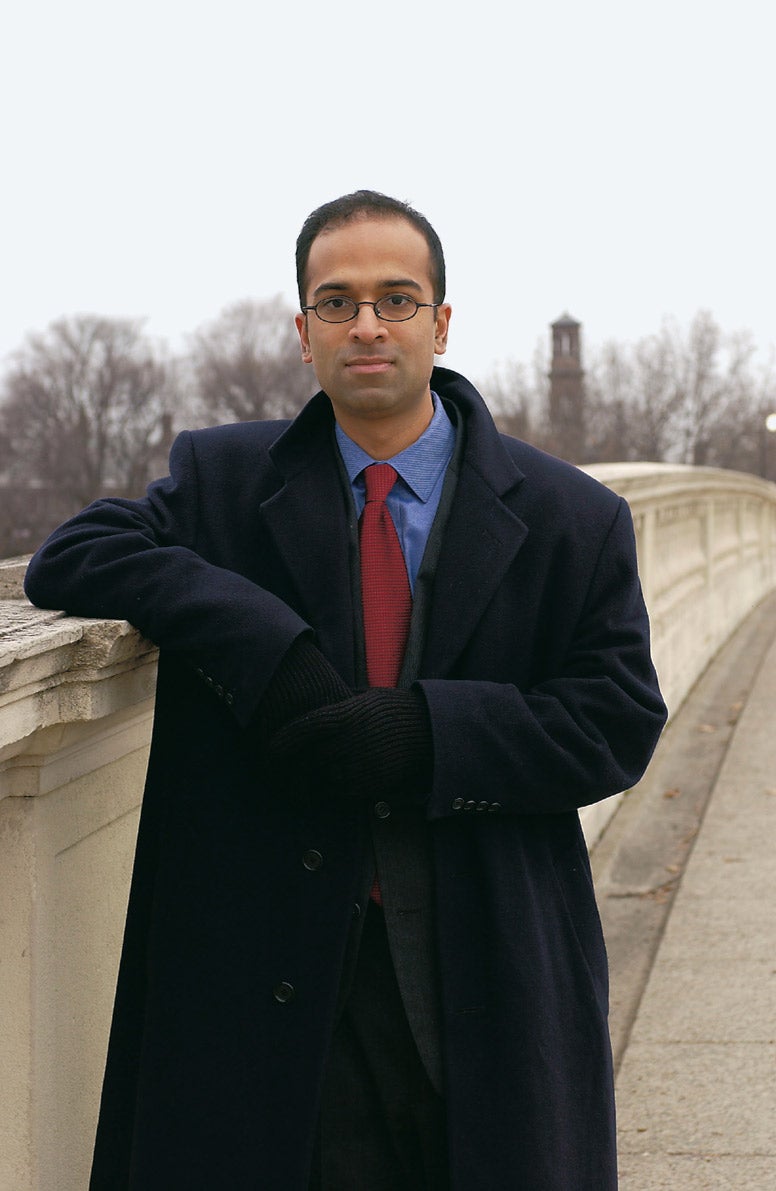By the time Guhan Subramanian J.D./M.B.A. ’98 left the Harvard Business School faculty for the HLS faculty last summer, Harvard Law School had transformed the 1L experience from when he was a student. But the smaller classes and focus on more student-faculty interaction came as no surprise to him. After all, he had an insider’s perspective.
That’s because soon after graduating, Subramanian spent months back on campus interviewing students and faculty on their attitudes toward HLS for a McKinsey & Co. study that stemmed from the faculty’s Strategic Plan.
Subramanian says that after he left McKinsey to teach at Harvard Business School, people there sensed that changes were under way across the river. Now that he’s crossed over, he’s impressed with the results, from the smaller 1L sections to the pro bono requirement.
Unlike many J.D./M.B.A.s, Subramanian did his business school training first. His dream was to become a CEO, but the power of ideas in law school classes such as the Negotiation Workshop and the Law and Economics seminar drew him to academe. And although he enjoyed his research and teaching at the business school, he’s thrilled to have joined the faculty that inspired him to want to teach.
Subramanian said he has a special fondness for the rigor of the law school case method: “It’s just fabulous to walk into class every day and have the interaction and the back and forth. I rush in to school every day excited about it.”
But he also continues to draw on tools from the business school classroom, with its focus on group learning; it’s important, he says, for teaching negotiations, where part of what students are doing is coaching others. He also encourages team projects in Corporations.
Subramanian said his own research is happily situated between the two schools, as he applies “some of the econometric techniques that are pervasive in business school research to legal issues.” He expects to keep up his contacts at the business school and to hold himself to their empirical standards. “There is an enormous opportunity to do careful, rigorous, serious, large-sample analysis of classically or at least historically legal issues,” he said. He has already collaborated with HLS Professor John Coates, an association that began when Subramanian was a 3L and dropped off a copy of The Harvard Law Review note he’d written in which he cited one of Coates’ papers. Coates’ response, several pages of unsolicited feedback, is the sort of opportunity Subramanian hopes today’s HLS students will find.
